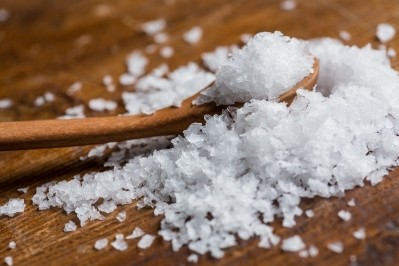Reformulation to help tackle heart disease and diabetes

The report from Tate & Lyle scientists, working with data analytics company Crème Global, found that increasing the fibre content of everyday UK foods would enable 50% more adults to get their recommended daily amount of fibre in their diets.
Other benefits included: a reduced risk of cardiovascular and type 2 diabetes for 72% of adults; more than double the number of children in the UK meeting their fibre intake recommendation; and see 6% of the UK population lose weight through higher fibre consumption.
Kavita Karnik, global head of Nutrition & Regulatory Affairs at Tate & Lyle and a co-author of the health and nutrition data modelling study, said that while most people understood that eating fibre helped keep bowel function regular, fewer understood that getting the right amount of fibre in their diets was highly beneficial for wider health and wellbeing – including cardiovascular, immunity, skin, brain and gut health.
Difficult for consumers
“However, for most people it is difficult to get enough fibre into their diet without exceeding their recommended calorie intake,” Karnik added.
“This is where fibre fortification could play a highly beneficial role to public health – it would allow consumers to continue eating the products they prefer while potentially, lowering rates of cardiovascular disease, Type 2 diabetes and help maintain a healthy weight across the population.”
British Nutrition Foundation science director Sara Stanner said reformulation could help counter consumer reluctance to change their diets and support better health.
“We have seen how reformulation has helped to reduce salt consumption and it’s important that the food industry continues to innovate to produce healthier products, in some cases reducing nutrients such as salt or sugar or by adding beneficial components such as fibre,” Stanner continued.
Dietary intake
According to the report, UK adults consume just 19g of fibre per day on average – significantly under the recommended amount of 30g – with only 9% currently meeting the daily target.
Low fibre intake is associated with higher levels of colorectal and breast cancer, cardiovascular disease and diabetes, and can disrupt the beneficial gut microbiome.
More than 20 food andd rink companies have now pledged to increase the amount of fibre in consumers' diets after backing the Food and Drink Federation's (FDF's) Action on Fibre inititative.
The FDF’s chief scientific officer Kate Halliwell said: “We are delighted to see so many FDF members pledge their support to Action on Fibre. These innovative companies are ensuring consumers are offered a wide range of higher fibre food products and to raise awareness of this important and often ignored nutrient.
“Fibre plays an essential role in the diet and currently the UK’s population, on average, does not consume enough fibre in their diets. Fibre February is a fantastic opportunity to raise awareness and improve the health of our nation.”
Meanwhile, manufacturing, nutrition, product development food science and legal experts will share the latest insights on reformulation at a forthcoming Food Manufacture virtual event.
Running from 29-30 March, Reformulation: What Next? – sponsored by RSSL – will feature five sessions a day incorporating presentations, one-to-one interviews and panel discussions aimed primarily at technical, NPD and regulatory affairs managers.
















